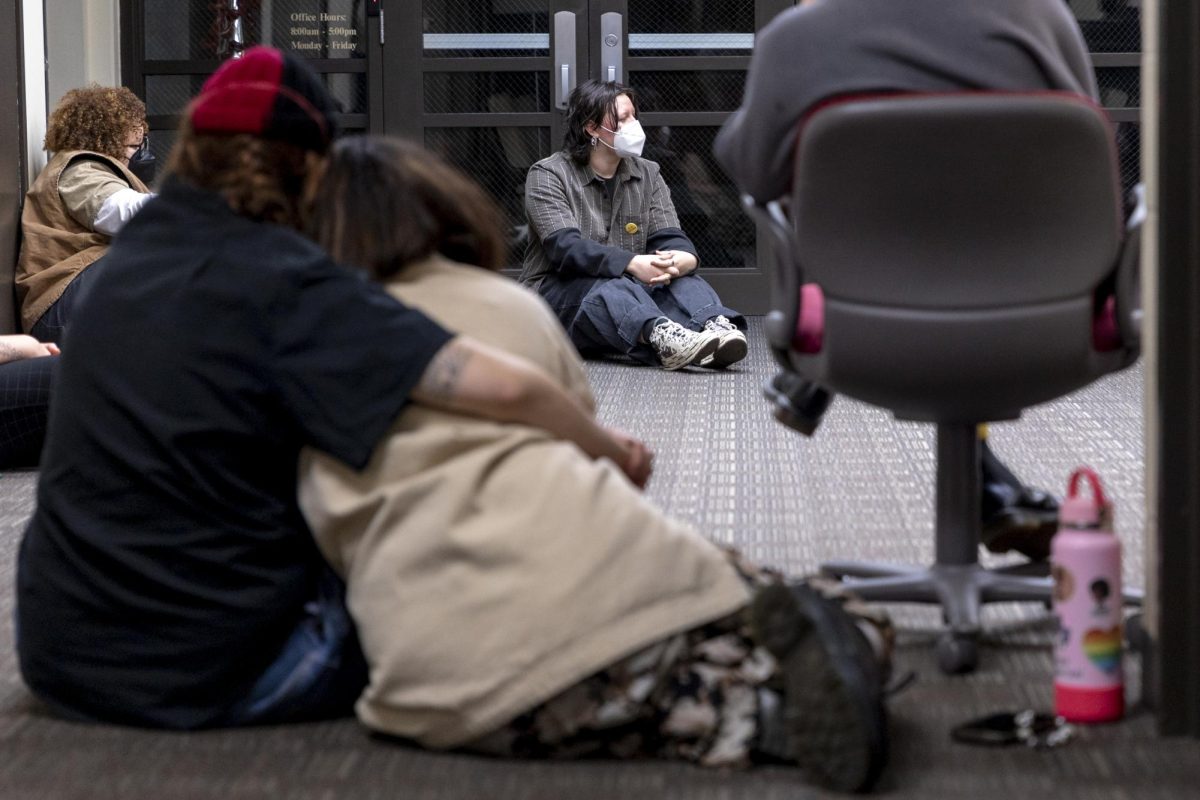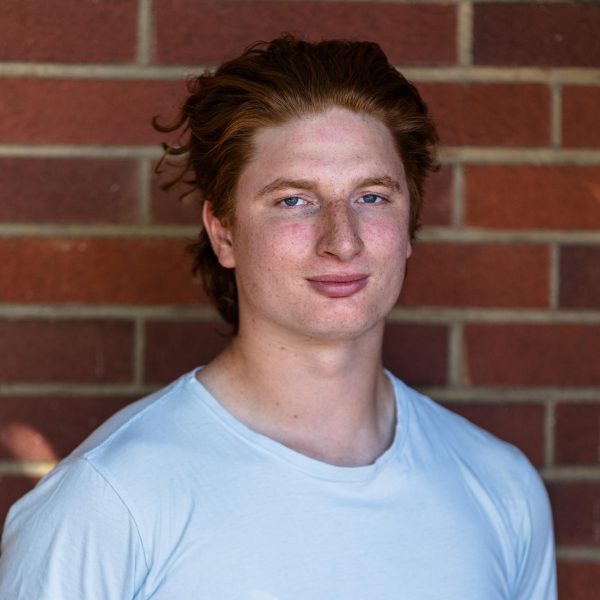
On Friday, Feb. 16, more than 20 students crowded the floor of second Demaray to discuss the history of queer liberation on Seattle Pacific University’s campus and what to do next. In 2022, that same hallway was home to a 19-day-long sit-in by students to gain administrative support for a lawsuit against the Board of Trustees.
The Friday event, which was advertised as a “Teach-In,” had the goal of giving students and faculty background on the legacy of queer activism from the 1990s to today, and providing a space for group discussion on what the student body can do next.
Taylor Moananu, a junior political science and sociology double major, found a flyer in the Student Union Building just minutes before the event started. Moananu decided to spontaneously attend and learn how best she could help in the cause.
“That’s why I’m here, I feel like I’m not as educated about what’s going on, so I’d like to get a little more knowledge and understanding about that,” Moananu said.
Lia Harper, a senior theater education major, has been proudly outspoken about LGBTQ+ rights at SPU since her freshman year in 2020. Harper wanted to hear and learn from friends and peers to understand where the movement came from and where the community could take it.
“When we had the sit-in, I was here a lot of nights. I slept here a lot and I’ve been very active and outspoken about my dislike for the homophobia that we see on campus. So, I wanted to come in because I knew we were going to be talking more about the history past the sit-in; knowing about the past and what we can do to the future, I really wanted to come here and see that,” Harper said.
The event began with a timeline speech from alumnus Isabel Bartosh and senior history museum studies major Lou Bridges. Bartosh and Bridges, along with other peers, created a website detailing significant years and events in the ongoing fight for queer institutional recognition to apply for the SERVE grant — a research grant to provide monetary support for exploring the impacts of institutional Christian callings.
Bartosh and Bridges expressed their hope that students use the SERVE grant research website as a way to expand their historical knowledge of the cause to not start from scratch with every attempt to change policies.
“I really do believe that history is an act of care, and part of the reason why it is important in a space and institution like this, is because the institutional memory that each person has is four years long,” Bartosh said. “Your institutional knowledge is four years long, so if your understanding of this fight is starting with your freshman year and ending with your senior, like Rae said, you’re not going to diversify your tactics.”
Next, attendees split up into discussion groups. Handouts were passed around with question prompts about where the community could go from there. Students and faculty passionately conversed and shared ideas.
When the group came back together, a few shared ideas that stuck out from the small groups. Bridges feels a sense of urgency in bringing more impassioned students to events and clubs to aid in the longevity of the movement.
“The question that I was coming up with was, how do we get people to re-prioritize activism? … I think part of it, and not to be pessimistic, but I think a lot of people have lost hope, and I understand that deeply,” Bridges said. “There are always going to be people at SPU who are queer and who benefit from the history we have here, and who we need to leave legacies here.”

















































































